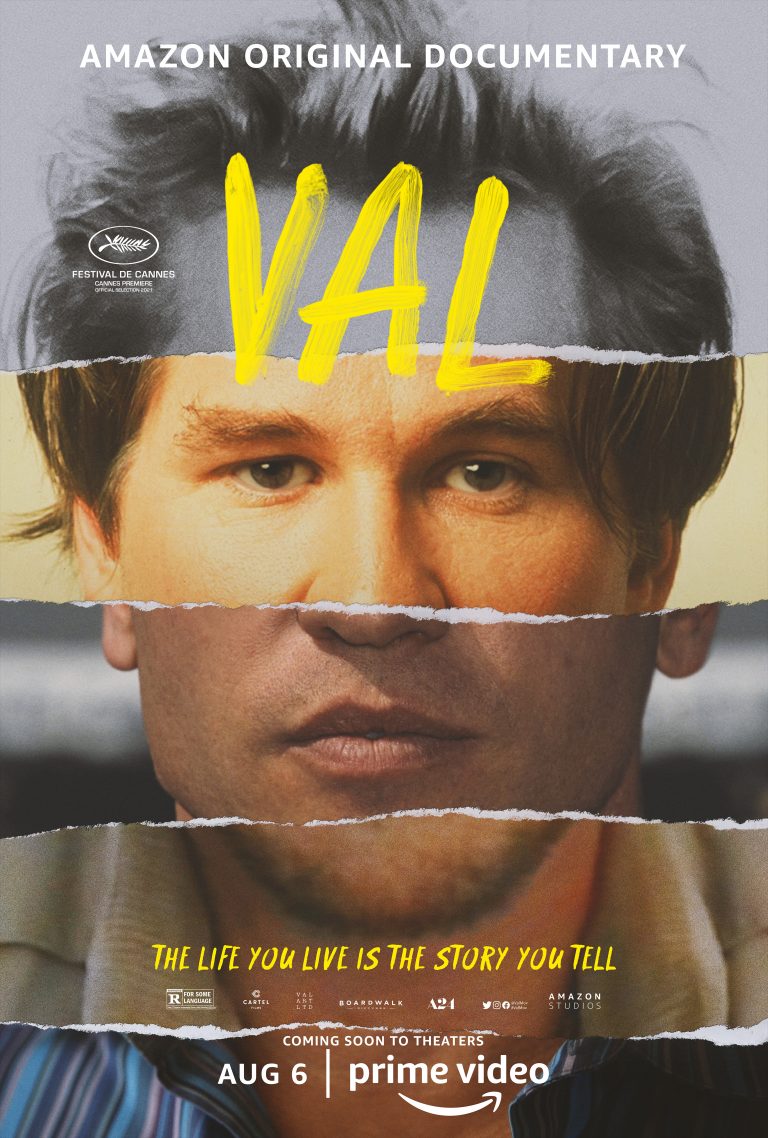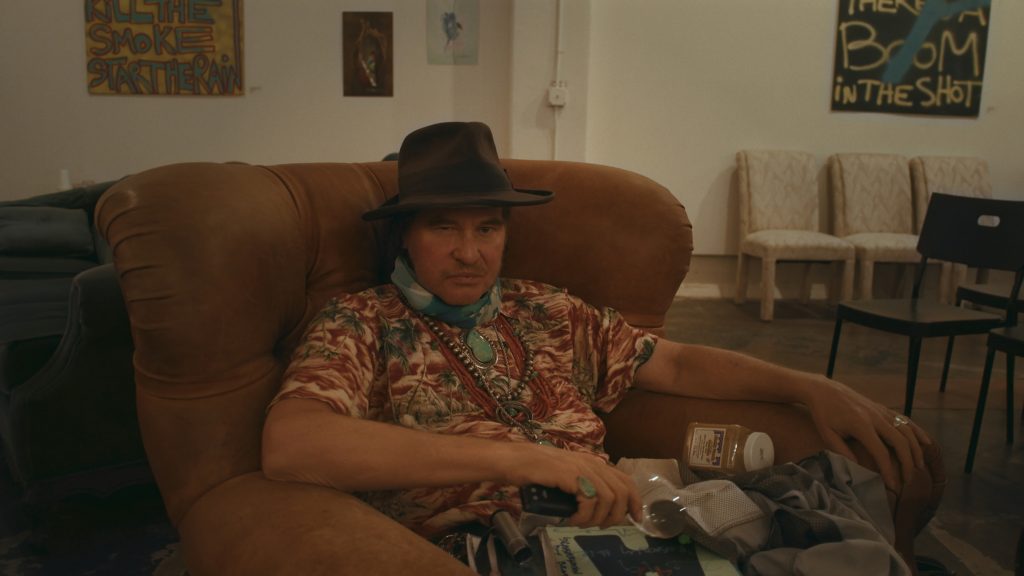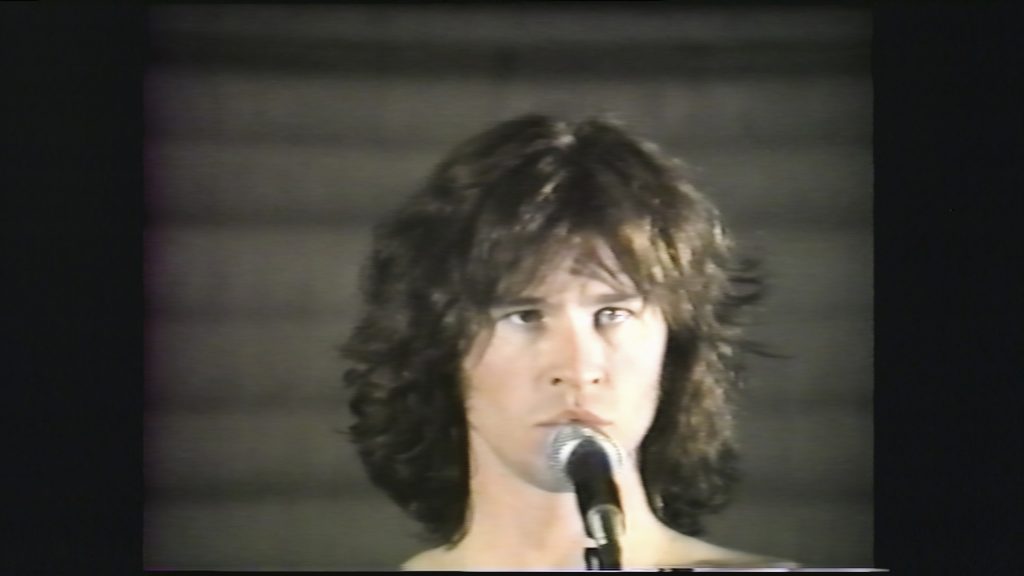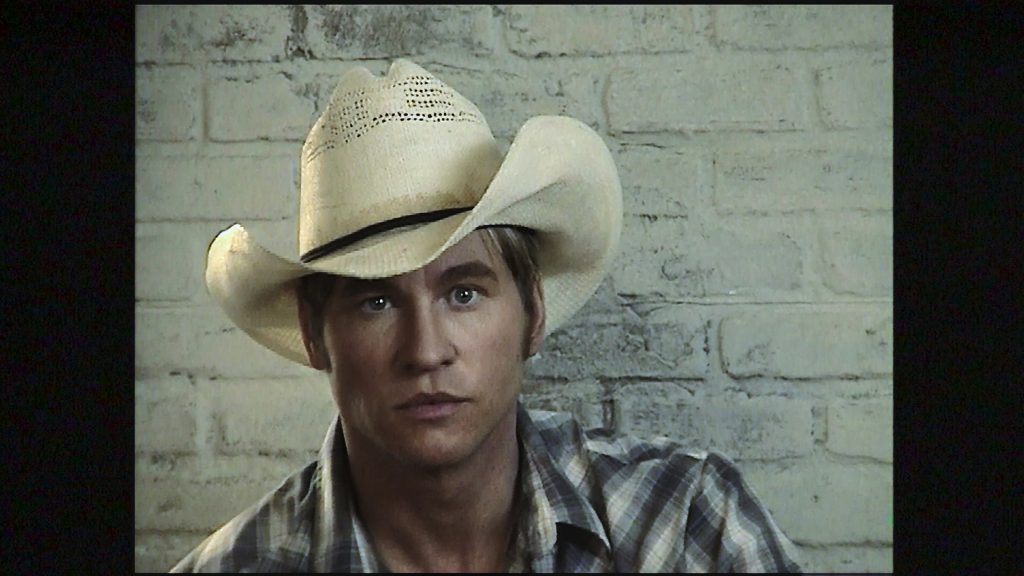
For more than 40 years, Val Kilmer, one of Hollywood’s most versatile and at times misunderstood actors, has captured her own life through her own personal video. He has amassed thousands of hours of footages, from 16mm home movies made with his brothers, to time spent in iconic roles for blockbuster movies like Top Gun, The Doors, Heat, and Batman Forever. This raw, and unflinching documentary reveals a life lived to extremes and a heart-filled, sometimes hilarious look at what it means to be an artist and a complex man.

© 2020 A24 DISTRIBUTION, LLC. All Rights Reserved.
An Exclusive Interview with Directors Leo Scott and Ting Poo
(Q) : Val Kilmer was recently diagnosed with throat cancer. It’s very difficult to talk, but he wanted to tell his story more than ever. How did you approach Val to make this film? What was the starting point?
Leo Scott: I had already been working with Val before we started this film for a long time. I met him a decade ago and I was helping him on his Mark Twain project, his one-man play where he plays Mark Twain. I started filming some of the development of that character. We were going to make a story about that process of acting and creating a role. Around that time, he also asked me to help him with this archive that had been in storage and was actually decaying, these old tapes and film reels decaying, and it was actually a bit stressful, the idea that they were in storage and he wanted to have them restored and digitized.
He hired me to do that, which is a massive operation that we did for nine months in my garage, in about 2015, 2016 or something. So nine months digitizing and then we had to park up that Twain project around that time, but about two or three years later, Ting came to me as a collaborator friend and she remembers seeing some of that material and she was looking for a project and I hadn’t forgotten it. You don’t forget something like this, it was a very special opportunity. She said, do you want to do something with this, and so we took it to Val.
Ting Poo: We took it to Val, and we actually put together a three-minute piece to represent the tone and the kind of storytelling that we wanted to do and presented it to him. He understood it right away and said go for it.

© 2020 A24 DISTRIBUTION, LLC. All Rights Reserved.
(Q) : He had two brothers, Wesley and Mark. They obviously had a very close relationship. It must have been very traumatic for him that Wesley died after he had an epileptic fit and drowned in a Jacuzzi when he was only fifteen years old. How do you think he coped with that and then went on to Juilliard?
Ting Poo: Yeah, it was an extremely traumatic experience for him and his entire family. I mean, his brother was a kindred spirit to him in many ways because I mean, just the filmmaking, he was such a talented director at such a young age and Val took the acting route but he was on the filmmaking/directing side and they were like best friends. But I think the film shows how Val went to Juilliard immediately after and just dug into his creative side. And that was a coping mechanism, I believe. And throughout the film, we see how Val returns to his creativity and himself as an actor and as an artist after lots of struggles in his own life.
(Q) : I was surprised that Val mentioned that he didn’t want to be in Top Gun initially because the script was bad, but I assume the vision of Tony Scott and the enthusiasm of Tom Cruise probably got him in. Why do you think he made that choice? It seems like a no-brainer, especially with how technology was back then.
Leo Scott: I think that Val now really appreciates having done that film. It’s an iconic performance and an important part in his career. At the time, I think he was debating and uncertain about the idea of warmongering in the film, having to make this decision of, what is this going to be like? You have to think then, that even though it’s a young Tom Cruise and a few other young stars, you wouldn’t have known that this was going to be an iconic movie. It was a movie that was being presented to him, and he was already a rising star, there were probably other things he was being offered. I think it was once he did meet Tony Scott and the excitement and the descriptions of how he was going to shoot it all, I think he was very seductive and then he was in. In our film, when he’s reflecting back, at the time he was he was uncertain to do it or not. But then once he was in…
Ting Poo: He was contractually obligated to do it, I think too.

© 2020 A24 DISTRIBUTION, LLC. All Rights Reserved.
(Q) : Initially, it wasn’t a big part. But he expanded the character and created a background to make him so iconic. He creates this rivalry, which amazed me.
Ting Poo: Yeah, definitely.
(Q) : I was surprised that he made an audition tape and sent it to Stanley Kubrick for Full Metal Jacket and also for Goodfellas. Back then, was that common for actors, or did he do it because he had been practicing with his home video?
Ting Poo: I don’t know how common it was. I don’t think it was that common, but even if it was common, the extent to which he put together these tapes, he’s not just in a room reading lines. He’s making mini-movies to send. For Goodfellas, he shot a mini-film with camera angles and shots on the streets. For Full Metal Jacket, he’s actually walking through a California swamp in full costume. Even if it was common to send audition tapes, I don’t think that it was common to put so much thought and effort into making one.
(Q) : After working with Marlon Brando on The Island of Dr Moreau and having an argument with director John Frankenheimer, Hollywood pegged him as a difficult actor even though many actors said he was very professional. It must have been very frustrating for him to work back then. What do you think his state of mind was at the time, struggling with the media even though he had quite a career?
Leo Scott: The Island of Dr Moreau was a very troubled production, famously so. And I think he had been wanting to work with Marlon Brando his whole life. He had such high expectations for that. I think it was a doomed production in various different aspects. Val does have high standards and he’s like a real actor. I suppose what we try to show in the film is how the business is changing and the movie industry doesn’t always want just the best actors. From the end of the 90s going into the 2000s, the industry maybe wanted people who were easier to work with. Val’s got impeccably high standards.
Ting Poo: I think we tried to show those situations in the way that Val experienced them. The Island of Dr Moreau for sure was difficult for everybody. It was a famously toxic set all around. But we wanted to present the footage itself and let the audience live in what it might have been like to be there. And give space to see how a movie so big can go in such a place. I think Leo is right and that particular experience was really crushing for Val because Brando was a hero to him for his entire life. From a young age. It was his first opportunity to work with him and be with him on a film. And so, to see the film spiral in a place where no one can creatively do what they’re there to do was just a heartbreak.
Here’s the trailer of the film.

